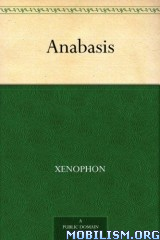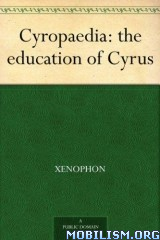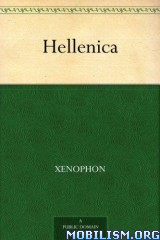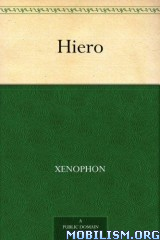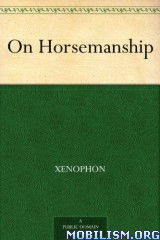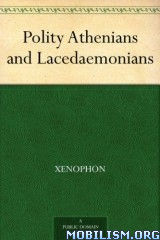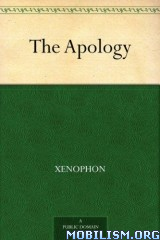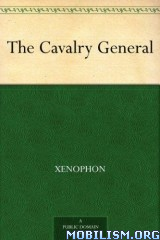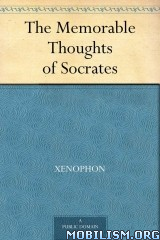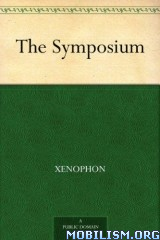14 Books by Xenophon
Requirements: ePub or Mobi viewer, 12.4 MB
Overview: Xenophon (Greek: Ξενοφῶν, Xenophōn; English pronunciation: /ˈzɛnəfən/, Greek pronunciation: [ksenopʰɔ̂ːn]; c. 430 – 354 BC), son of Gryllus, of the deme Erchia of Athens, also known as Xenophon of Athens, was a Greek historian, soldier, mercenary, philosopher and a contemporary and admirer of Socrates. He is known for his writings on the history of his own times, the 4th century BC, preserving the sayings of Socrates, and descriptions of life in ancient Greece and the Persian Empire.
Genre: Historical essay
Agesilaus: And for my part I hold it as chief among the magnificent benefits so conferred by him upon his country that, being the most powerful member of the state, he made no secret of his absolute submission to the laws, 3] since what lesser man, seeing the king’s obedience, would take 4] on himself to disobey?
Anabasis: Xenophon (ca. 430 to ca. 354 BCE) was a wealthy Athenian and friend of Socrates. He left Athens in 401 and joined an expedition including ten thousand Greeks led by the Persian governor Cyrus against the Persian king. After the defeat of Cyrus, it fell to Xenophon to lead the Greeks from the gates of Babylon back to the coast through inhospitable lands. Later he wrote the famous vivid account of this ‘March Up-Country’ ("Anabasis"); but meanwhile he entered service under the Spartans against the Persian king, married happily, and joined the staff of the Spartan king, Agesilaus. But Athens was at war with Sparta in 394 and so exiled Xenophon. The Spartans gave him an estate near Elis where he lived for years writing and hunting and educating his sons. Reconciled to Sparta, Athens restored Xenophon to honour but he preferred to retire to Corinth.
Cyropaedia: the education of Cyrus: This work has been previously published and carefully edited by humans to be read digitally on your eReader. Please enjoy this historical and classic work. All of our titles are only 99 cents and are formatted to work with the Nook. Also, if it is an illustrated work, you will be able to see all of the original images. This makes them the best quality classic works available for the lowest price. So enjoy this classic work as if it were the original book!
Hellenica: Thucydides’ magisterial history told of the unhappy conflict of Greeks against the Greeks in the Peloponnesian War, but his narrative broke off in 411 B.C., seven years before the end, and Greeks were to continue fighting one another for many more years. Xenophon continues the account to 362 B.C. These years saw Athens humbled by Sparta; Sparta humbled by Athens and her former ally, Thebes; Athens ground down again by the military genius of the Theban Epaminondas, taking on both Athens and Sparta; and behind the scenes the might of Persia, intervening now on one side, now on another.
Xenophon himself knew many of the protagonists and his writing is personal history as well as a chronicle of events; he vividly portrays individuals, heroic and treacherous, influencing politics and battles and leading Greece inevitably towards impotence.
Hiero: Hiero (Greek: Ἱέρων, Hiéron) is a minor work by Xenophon, set as a dialogue between Hiero, tyrant of Syracuse, and the lyric poet Simonides about 474 BCE. In it Xenophon argues that a tyrant does not have any more access to happiness than a private person.
The dialogue—like many of Xenophon’s works—does not receive much scholarly attention today. However, it was the nominal subject of Leo Strauss’ analysis On Tyranny, which initiated his famous dialogue with Alexandre Kojève on the role of philosophy in politics.
On Horsemanship: On Horsemanship is the English title usually given to Περὶ ἱππικῆς, peri hippikēs, one of the two treatises on horsemanship by the Athenian historian and soldier Xenophon (c. 430 – 354 BC). Other common titles for this work are De equis alendis and The Art of Horsemanship. The other work by Xenophon on horsemanship is Ἱππαρχικὸς, hipparchikos, usually known as Hipparchicus, or The cavalry commander. The title De re equestri may refer to either of the two.
On horsemanship deals with the selection, care and training of horses in general. Military training and the duties of the cavalry commander are dealt with in the Hipparchicus.
On Revenues: AKA: Ways and Means (Greek: Πόροι, Poroi) was written in 354 BC and is believed to be the last work written by Xenophon.[1] A half century after Athens’ defeat in the Peloponnesian War, the city was facing financial ruin.[2]
Ways and Means consists of 5 chapters. In chapter 1 Xenophon lists the qualities of Athens that make it qualified for large revenue. The qualities that Xenophon lists are that the seasons in Attica are mild, the land and the sea near it are productive, and Athens is not near the land of the barbarians.[3]
In chapter 2 Xenophon suggests that Athens should increase the metic (foreigners who are not granted citizenship) population within Athens as a means of increasing revenue.
Polity Athenians and Lacedaemonians: An essay about the law, government and politics in Athens and Sparta.
The Apology: The Apology (in full Apology of Socrates to the jury (Ancient Greek: Ἀπολογία Σωκράτους πρὸς τοὺς Δικαστάς) is a Socratic dialogue by Xenophon, a student of Socrates. It recounts Socrates’ self-defense at his trial and execution, focusing prominently on his view that it was better to die before senility set in than to escape execution by humbling himself before an unjust persecution. It is the only surviving primary account of the trial other than Plato’s Apology.
The Cavalry General: Hipparchicus is the name usually given to Ἱππαρχικὸς, hipparchikòs, one of the two treatises on horsemanship by the Athenian historian and soldier Xenophon (c. 430 – 354 BC). Other common titles for this work include The cavalry commander and The cavalry general. The other work by Xenophon on horsemanship is Περὶ ἱππικῆς, perì hippikēs, usually translated as On horsemanship, De equis alendis or The Art of Horsemanship. The title De re equestri may refer to either one of the two works.
Hipparchicus deals mainly with the duties of the cavalry commander (hipparchus), while On horsemanship deals with the selection, care and training of horses in general.
The Economist: The Oeconomicus by Xenophon is a Socratic dialogue principally about household management and agriculture. It is one of the earliest works on economics in its original sense of household management, and a significant source for the social and intellectual history of classic Athens. Beyond the emphasis on household economics, the dialogue treats such topics as the qualities and relationships of men and women, rural vs. urban life, slavery, religion, and education. Joseph Epstein states that the Oeconomicus can actually be seen as a treatise on success in leading both an army and a state.
Scholars lean towards a relatively late date in Xenophon’s life for the composition of the Oeconomicus, perhaps after 362 BC. Cicero translated the Oeconomicus into Latin, and the work gained popularity during the Renaissance in a number of translations.
The Memorable Thoughts of Socrates: Memorabilia (original title in Greek: Ἀπομνημονεύματα; Apomnemoneumata) is a collection of Socratic dialogues by Xenophon, a student of Socrates. The lengthiest and most famous of Xenophon’s Socratic writings, the Memorabilia is essentially an apologia (defense) of Socrates, differing from both Xenophon’s Apology of Socrates to the Jury and Plato’s Apology mainly in that the Apologies present Socrates as defending himself before the jury, whereas the former presents Xenophon’s own defense of Socrates, offering edifying examples of Socrates’ conversations and activities along with occasional commentary from Xenophon.
The Sportsman: Cynegeticus or "Kynegetikos" (Derived from: Κυνηγετικόν = "Hunting" from the ancient Greek verb κυνηγέω/κυνηγώ, a composite of κύων = dog and άγω = to lead or bring; literally to lead or bring dogs), is a treatise by the ancient Greek philosopher and military leader Xenophon, usually translated as "On Hunting" or "Hunting with Dogs." [1] It is one of the four works by Xenophon on arts or skills (each ends with -ikos/-icus). The other three are: Hipparchicus ("The Skilled Cavalry Commander") Peri Hippikes ("On Horsemanship"), Oeconomicus ("On Household Management").
The Symposium: The Symposium (Συμπόσιον) is a Socratic dialogue by Xenophon. It dramatizes a discussion of Socrates and company at a dinner given by Callias for Autolycus, son of Lycon. (Some commentators identify this Lycon with the Lycon who was one of Socrates’ prosecutors.[1] However, others doubt the identification; John Burnet, for example, claims it "is most improbable".[2]) 421 BC is the dramatic date of Xenophon’s Symposium.
While Plato’s Symposium consists of a series of lengthy speeches in praise of love, Xenophon’s is dominated by witty repartee.
A contest of words emerges between Socrates and Callias, and each of the symposiasts is asked to describe the thing which he prides himself on most. All their answers are playful or paradoxical: Socrates, for one, prides himself on his knowledge of the art of pimping.
The story comes to a climax when Socrates praises the love Callias had for Autolycus.
Download Instructions:
http://corneey.com/wK8qyZ
Mirror:
http://corneey.com/wK8qyM

